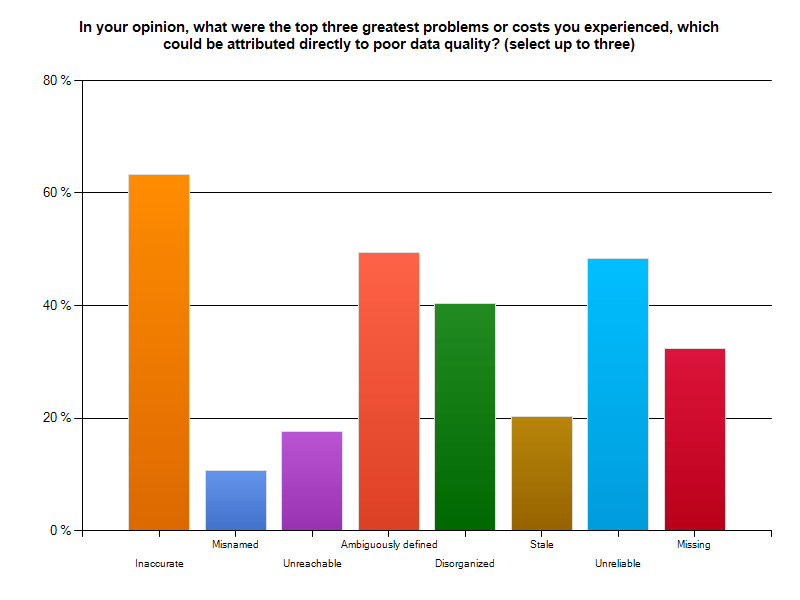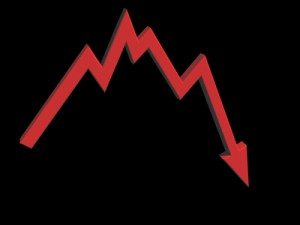Browsing articles tagged with " Chaordix"
Bad Data is a Social Disease (Part 1)
Organizational bad data is a social disease easily passed to your business partners and stakeholders With 200 completed responses in our "Poor Data Quality - Negative Business Outcomes" survey, run in conjunction with The Robert Frances Group, the IBM InfoGovernance Community, and Chaordix, it is safe to say that bad data is a social disease that can spread easily and quickly. Merriam-Webster defines a social disease as
a disease (as tuberculosis) whose incidence is directly related to social and economic factorsOK, that definition works for the bad data social disease. In this case, the social and economic factors enabling and potentiating this disease include
- Business management failing to fund and support data governance initiatives
- IT management failing to sell the value of data quality to their business colleagues,
- Business partners failing to challenge and push-back when bad data is exchanged
- Financial analysts not downgrading firms that repeatedly refile 10-Ks due to bad data
- Customers not abandoning firms that err due to bad data quality and management
 Social diseases negatively affect the sufferer, their partners, and the community around them. According to our respondents:
Social diseases negatively affect the sufferer, their partners, and the community around them. According to our respondents: 
- 95% of those suffering supply chain issues noted reduced or lost savings that might have been attained from better supply chain integration.
- 72% reported customer data problems, and 71% of those respondents lost business because the didn't know their customer
- 71% of those suffering financial reporting problems said poor data quality cause them to reach and act upon erroneous conclusions based upon materially faulty revenues, expenses, and/or liabilities
- 66% missed the chance to accelerate receivables collection
- 49% reported operations problems from bad data, and 87% of those respondents suffered excess costs for business operations
- 27% reported strategic planning problems, with 75% of those indicating challenges with financial records, profits and losses of units, taxes paid, capital, true customer profiles, overhead allocations, marginal costs, shareholders, etc.)


